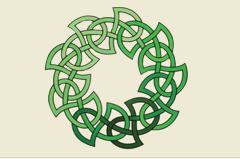Abstract
"Humans are amphibians -- half spirit and half animal," writes Screwtape. In Mere Christianity, C.S. Lewis would clarify these halves as the Bios and the Zoe -- the biological and the spiritual, respectively. Humans are, as Dr. Ransom admits in That Hideous Strength, "More. But not less" than animals, yet humanity's Fall resulted from "the idea that they could 'be like gods' -- could set up on their own as if they had created themselves -- be their own masters -- invent some sort of happiness for themselves outside God, apart from God" (MC). Humans are placed above animals yet below the divine. Lewis, like his fellow authors, points to these paradoxes as the heart of humanity's significance -- that is, humanity should be not only the masters of the beasts but also the mastered of the divine. As Ransom aptly states," We are now as we ought to be -- between the angels who are our elder brothers and the beasts who are our jesters, servants and playfellows." This presentation discusses how humanity, in Lewis' worldview, must accept its place in the hierarchy of the universe in order to find significance, for, as G.K. Chesterton remarks in The Everlasting Man, humanity is "the measure of all things."
Recommended Citation
Rhone, Zachary A.
(2012)
"A Meaningful Hierarchy: How C.S. Lewis Perceives Humanity's Significance,"
Inklings Forever: Published Colloquium Proceedings 1997-2016: Vol. 8, Article 22.
Available at:
https://pillars.taylor.edu/inklings_forever/vol8/iss1/22
Included in
English Language and Literature Commons, History Commons, Philosophy Commons, Religion Commons

